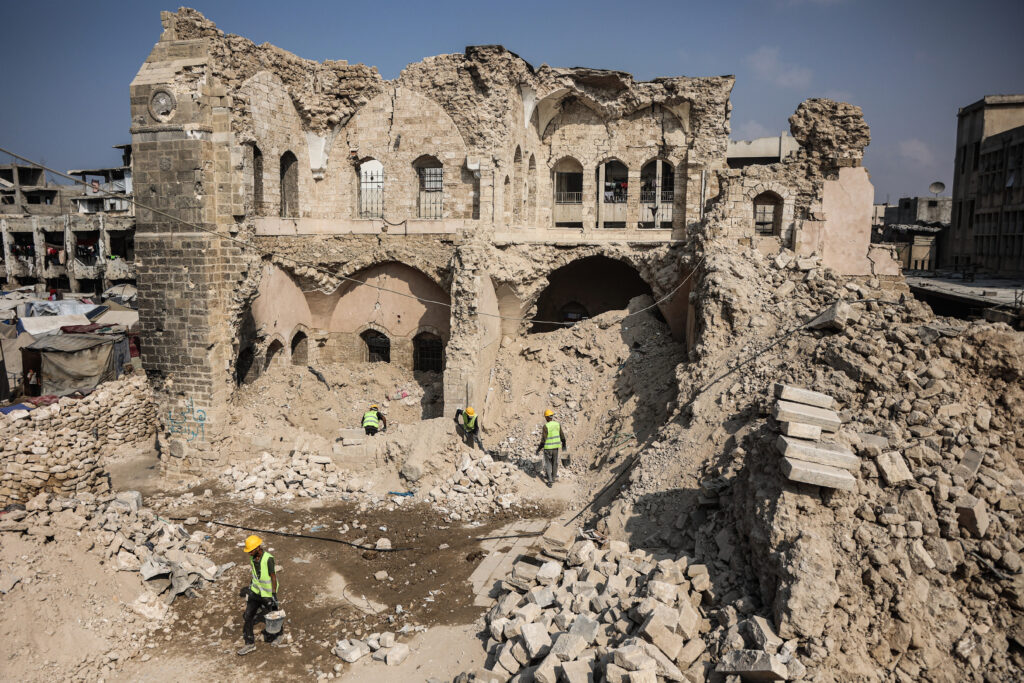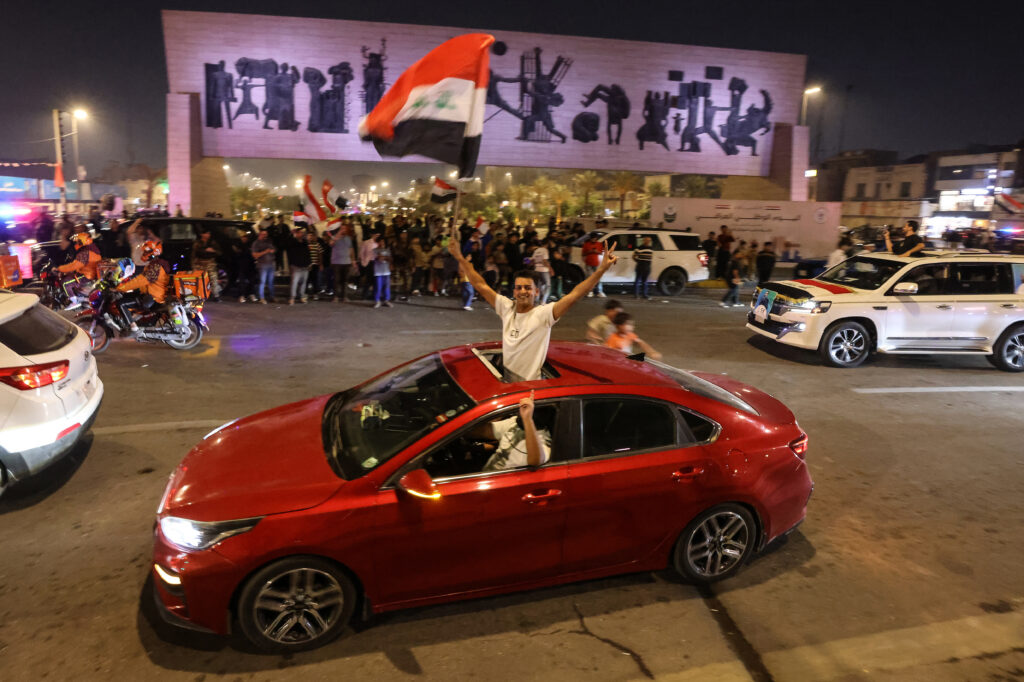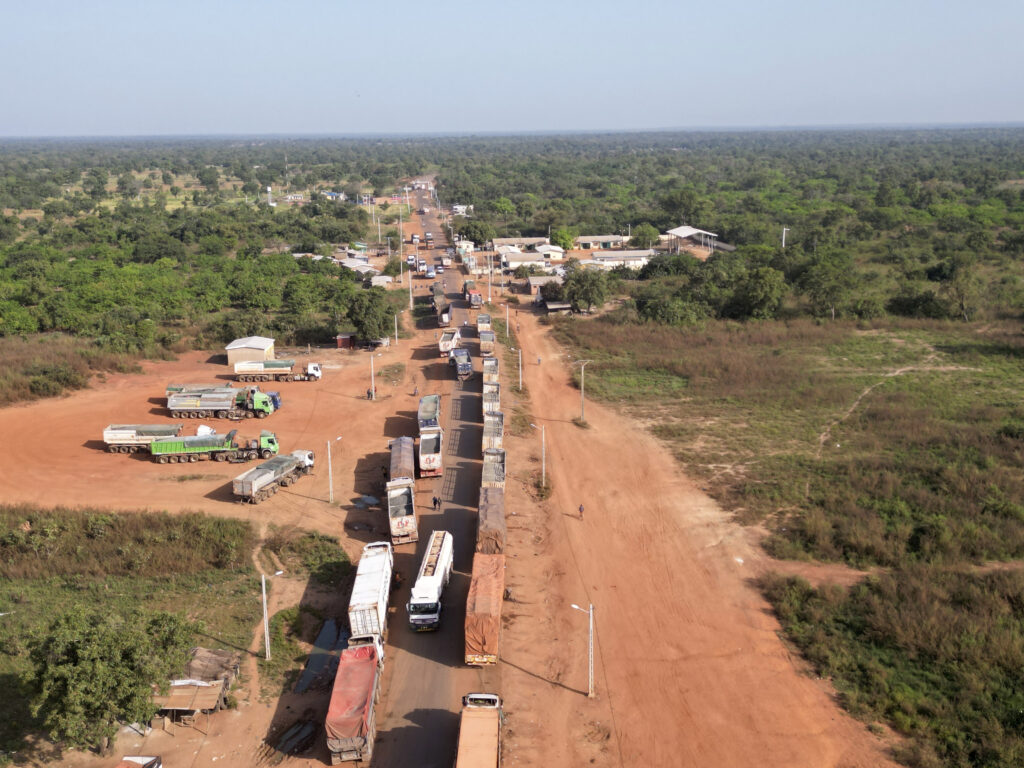AFP Asia Business
Gazans begin to restore historic fort damaged in war
One bucket at a time, Palestinian workers cleared sand and crumbling mortar from the remains of an former medieval fortress turned museum in Gaza City, damaged by two years of fighting between Israel and Hamas.A dozen workers in high visibility jackets worked by hand to excavate the bombarded buildings that remain of the Pasha Palace Museum — which reputedly once housed Napoleon Bonaparte during a one-night stay in Gaza — stacking stones to be reused in one pile, and rubble to be discarded in another.Overhead, an Israeli surveillance drone buzzed loudly while the team toiled in silence.”The Pasha Palace Museum is one of the most important sites destroyed during the recent war on Gaza City,” Hamouda al-Dahdar, the cultural heritage expert in charge of the restoration works, told AFP, adding that more than 70 percent of the palace’s buildings were destroyed.As of October 2025, the UN’s cultural heritage agency, UNESCO, had identified damage at 114 sites since the start of the war in Gaza on October 7, 2023, including the Pasha Palace. Other damaged sites include the Saint Hilarion Monastery complex — one of the oldest Christian monasteries in the Middle East — and Gaza City’s Omari Mosque.- ‘No more materials’ -Issam Juha, director of the Centre for Cultural Heritage Preservation, the nonprofit organisation in the Israeli-occupied West Bank who is helping coordinate the castle’s restoration at a distance, said the main issue was getting materials into Gaza.”There are no more materials and we are only managing debris, collecting stones, sorting these stones, and have minimal intervention for the consolidation,” Juha told AFP.Israel imposed severe restrictions on the Gaza Strip at the start of the war, causing shortages of everything including food and medicine.After a US-brokered ceasefire deal came into effect in October, aid trucks began flowing in greater numbers, but each item crossing into Gaza must be approved by strict Israeli vetting, humanitarian organisations say.Juha said the ceasefire had allowed workers to resume their excavations.Before, he said, it was unsafe for them to work and “people were threatened by drones that were scanning the place and shooting”.Juha said that at least 226 heritage and cultural sites were damaged during the war, arguing his number was higher than UNESCO’s because his teams in Gaza were able to access more areas. Juha’s organisation is loosely affiliated with the Ramallah-based Palestinian Authority’s ministry of antiquities, he said.- ‘Memory of the Palestinian people’ -“Our cultural heritage is the identity and memory of the Palestinian people,” Dahdar said in Gaza City.”Before the war, the Pasha’s Palace contained more than 17,000 artefacts, but unfortunately all of them disappeared after the invasion of the Old City of Gaza,” he said.He added that his team had since recovered 20 important artefacts dating back to the Roman, Byzantine and Islamic eras.Gaza’s history stretches back thousands of years, making the tiny Palestinian territory a treasure trove of archaeological artefacts from past civilisations including Canaanites, Egyptians, Persians and Greeks.”We are… salvaging the archaeological stones in preparation for future restoration work, as well as rescuing and extracting any artefacts that were on display inside the Pasha Palace,” Dahdar said.As the pile of excavated rubble already several metres high grew, one craftsman carefully restored a piece of stonework bearing a cross mounted with an Islamic crescent.Another delicately brushed the dust off stonework bearing Islamic calligraphy.”We are not talking about just an old building, but rather we are dealing with buildings dating back to different eras,” said Dahdar.
What lies ahead in Iraq: the hard task of forming a government
Following Iraq’s parliamentary election this week, the complex and often lengthy task of choosing the country’s next leader is set to begin.Incumbent Prime Minister Mohammed Shia al-Sudani claimed victory for his coalition after preliminary results showed it was the largest bloc — though it still falls short of the majority needed to form a government.Sudani now faces the tough quest of securing support from other parties, mostly from the Shiite majority, in his bid for a second term.With no single bloc dominating the next parliament, key parties could spend weeks or even months negotiating alliances to build the largest bloc and nominate the next premier.Sudani was brought to power in 2022 by the Coordination Framework, an alliance of Shiite factions with varying links to Iran.While preliminary vote counts for each list by province were released, seat allocations in parliament will not be announced until later.By convention in Iraq, a Shiite Muslim holds the post of prime minister and a Sunni that of parliament speaker, while the largely ceremonial presidency goes to a Kurd.- How is the government formed? -Naming a premier and forming a government has often proven to be an arduous task involving protracted political wrangling.In previous parliaments, Shiite majority parties have struck compromises to work together and form a government, and the main contenders often find themselves sidelined.Seats are used as bargaining chips, and newly-elected lawmakers can switch sides.With an outright majority almost impossible to achieve by any single list — as was the case in this week’s vote — the next premier will be selected by whichever coalition can gather enough allies to become the biggest bloc.Since voting began two years after the 2003 US-led invasion that toppled Saddam Hussein, only one premier, Nuri al-Maliki, has served for two terms (2006-2014).- What are the possible outcomes? -Currently, no serious candidates have emerged except for Sudani — though he himself was a relative unknown prior to his nomination.A senior politician told AFP last month that the Coordination Framework is divided over supporting Sudani, with Maliki seemingly poised to oppose a second term for the incumbent.Long-term powerbrokers, including from the Coordination Framework, worry that Sudani has amassed too much power during his first term, making some reluctant to allow him to keep his seat.Sudani has also faced allegations that members of his office were responsible for wiretapping the phones of politicians.A source within a main party in the Coordination Framework told AFP that the alliance had previously agreed to reunite and create the largest bloc.”They will name the next premier and participate in choosing the parliament speaker, his deputies and the president,” the source said. – What happened after previous votes? -In the 2010 election, former premier Iyad Allawi’s bloc won most seats, 91, closely followed by Maliki’s alliance, which won 89.After months of bickering, political leaders stuck a deal and Maliki was reappointed for another term despite coming second in the ballot.In 2021, influential Shiite cleric Moqtada Sadr’s bloc emerged as the biggest winner, with 73 seats, but still fell far short of a majority.His bloc withdrew from parliament following a dispute with other Shiite parties that culminated in deadly fighting in Baghdad.In the aftermath, influential parties instead came together under the Coordination Framework to form a larger bloc, and brought Sudani to power.- What role do Tehran and Washington play? -For decades, Iraq has been a proxy battleground between the US and Iran, and forming a government has always been influenced by the two foes.The next premier will have to maintain the delicate balance between their interests.Since the US-led invasion, Iran has not only wielded significant influence in Iraqi politics, but also backs armed groups in the country, whose power has grown both politically and financially.As Iran’s regional influence wanes, it aims to preserve its power in Iraq and keep the market open to products from its crippled economy.Washington meanwhile wants to cripple Tehran’s influence, pressuring Baghdad to disarm Iran-backed factions, many of which have been designated as terrorist groups.Some of those groups will nonetheless have seats in the parliament and maybe the government.Last week, Foreign Minister Fuad Hussein told the Saudi-funded Al-Hadath channel that six pro-Iran factions are on a US blacklist — a key factor the government must consider.
Royal ransoms, a top money-maker for Mali’s jihadist kidnappers
At least $50 million for the freedom of an Emirati sheikh: that is the king’s ransom paid two weeks ago to jihadists linked to Al-Qaeda who are pushing to topple the Malian government and impose Islamic law.Alongside a crippling fuel blockade, the Group for the Support of Islam and Muslims, known by its Arabic acronym JNIM, has made kidnapping wealthy foreigners for a ransom a pillar of its strategy of “economic jihad”.Its goal: oust the junta, which has struggled to contain Mali’s decade-long insurgency since taking power following back-to-back coups in 2020 and 2021, by scaring away investors and paralysing the west African country’s economy. In June, the JNIM threatened to strike any foreign businesses and industries installed in Mali, as well as any enterprise doing business with the Malian government without its “authorisation”. Since then the group — which hopes to cement its status as one of the most powerful of the jihadist factions to plague the region by expanding towards the Atlantic coast — has made good on its promise.It has attacked and burnt tankers carrying vital fuel to landlocked Mali from the coasts of Senegal or Ivory Coast, launched assaults on factories and mines alike — and kidnapped more foreigners than ever before.”Between May and October 2025, at least 22 foreign nationals have been abducted — roughly double the previous record of 13 in 2022,” Heni Nsaibia, Senior West Africa Analyst for the ACLED conflict monitor, told AFP. Chinese, Indians, Egyptians, Emiratis and Iranians are all among the victims, together with a Serbian, a Croat and a Bosniak, Nsaibia added. – ‘Highest known’ ransom -The JNIM demanded the $50 million ransom after kidnapping a member of the United Arab Emirates royal family involved in the gold trade near the capital Bamako on September 26, according to a source close to the negotiations and another Malian security source.Two of his business partners, an Iranian and a Pakistani, were also abducted. A first sum of 400 million CFA Francs (more than $700,000) was then sent to the jihadists in exchange for proof that the hostages were alive, the source close to the negotiations said. The JNIM then freed the trio at the end of October after a ransom of “$50 million at least”, the source added. That sum “represents the highest known ransom in the region and constitutes a major financial boost for (the JNIM)”, said Nsaibia.Who actually paid the ransom is unknown.But a Malian security source, who confirmed the exorbitant total, said JNIM also obtained “the release of around 30 of its prisoners” held by the Malian intelligence services.”Malian soldiers were also released during the same exchange. It is an astounding deal in terms of its scale and the elements involved, especially in the current context,” the security source continued.For Rida Lyammouri, a researcher at the Policy Center for the New South, the ransom will allow the JNIM to “maintain its current level of military engagement, including the economic blockade on Bamako, for a prolonged period”. – Swelling war chest -“Such a haul will only serve to boost the JNIM’s ambitions to expand and establish a lasting presence in the Sahel and the coastal states of Africa,” Lyammouri added.Liam Karr, an analyst at the Washington-based American Enterprise Institute (AEI), pointed out that those “funds will help the group procure more weapons, such as commercial drones, explosives, and small arms, as well as pay salaries to fighters”.The withdrawal of French troops in the wake of the coup has left a security vacuum exploited by the jihadists which the junta’s new security partners — including Russia — have failed to fill, Lyammouri said. And the JNIM still holds several other hostages who, once ransomed, will swell its war chest even further. Most are abducted in the west of the country, where around 80 percent of Mali’s gold production is mined, according to the Soufan Centre consultancy. At least 11 Chinese citizens have been abducted in western Mali in attacks on seven industrial sites, of which six were run by Chinese companies, according to the AEI think tank.And just last week, five Indians working for an electricity company and an Egyptian were kidnapped in the same region.”Targeting foreign nationals drives away foreign investment, undermining a key revenue stream for the Malian junta,” notably in the mining sector, said Karr, the AEI analyst.With the JNIM’s grip tightening, the United States and the United Kingdom announced two weeks ago that it was pulling out all non-essential personnel from Mali, while many embassies have urged their citizens to leave the country. lar-sd-str-bdi/pid/els/sbk/giv



